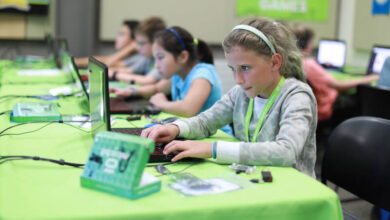Empowering Educators: The Impact of a Master’s in Literacy and Second Language Studies

The evolution of education demands that educators continuously seek ways to enhance their expertise and pedagogical approaches. A Master’s in Literacy and Second Language Studies can be a game-changer for those teaching diverse classrooms. This advanced degree equips educators with the skills necessary to support students in developing robust literacy skills and overcoming language barriers. As education faces the challenges of a globalized world, such an academic pursuit becomes increasingly pertinent. Below, we explore the far-reaching implications of this degree and the transformative effect it can have on educators and their students.
Empowering Educators through Advanced Literacy and Second Language Education
A Master’s in Literacy and Second Language Studies provides teachers with comprehensive training in teaching reading, writing, and communication skills, essential in any learning environment. This knowledge enables educators to design effective curricula that target language acquisition and literacy development. Mastering second language education is particularly beneficial in classrooms with non-native speakers, as teachers become adept at catering to individual learning styles and cultural backgrounds.
Graduates from these programs not only have a degree but also a renewed passion for teaching and a toolkit full of innovative approaches. The degree also focuses on interdisciplinary approaches, combining principles of linguistics, psychology, and education, fostering critical thinking and encouraging a love for reading among students.
The Transformative Power of a Master’s in Literacy and Second Language Studies on Teaching Methods
A Master’s in Literacy and Second Language Studies program transforms teaching methodologies by enabling educators to apply research-based strategies for literacy development across all grade levels and content areas. This expertise leads to dynamic classroom interactions and effective student engagement. The program also integrates technology in literacy and language instruction, allowing teachers to track progress and tailor interventions.
Graduates often adopt multisensory and differentiated instruction, fostering an inclusive environment for all students, regardless of linguistic background. They model innovative pedagogies reflecting the latest research. The degree also provides insight into assessing literacy and language proficiency, enabling teachers to address learning gaps effectively and ensure all students have the opportunity to succeed academically.
Fostering Inclusive Classrooms: The Role of Higher Education in Literacy and Language
Higher education in literacy and language is crucial for creating inclusive classrooms. Teachers who pursue this education create learning spaces where every student feels represented and supported, promoting empathy and mutual respect. This approach fosters a global perspective and prepares students for active participation in a diverse world.
Educators with a strong background in literacy and second language studies advocate for students who may struggle with conventional learning models due to their linguistic backgrounds. They push for curricula and instructional methods that affirm various cultural identities and learning needs. This higher degree also encourages collaborative learning strategies, fostering a sense of community and learning from each other’s strengths and perspectives.
Career Advancement for Educators: Opportunities Unlocked by a Master’s Degree
Earning a Master’s in Literacy and Second Language Studies opens up leadership roles like literacy specialist, curriculum coordinator, or even serving as a stepping stone to a master’s degree for principal. These roles allow educators to guide curriculum development, support peers, and influence school-wide strategies.
This advanced degree also paves the way for opportunities in higher education, policy, and community literacy programs. With specialized skills in language development, educators can impact teacher training, shape educational resources, and gain greater job security and earning potential.
Bridging Cultural Gaps with Literacy and Language Mastery in Education
Cultural literacy is crucial in education due to global interconnectedness. Master’s in Literacy and Second Language Studies equips educators to bridge cultural gaps in diverse classrooms by integrating multicultural literature and teaching methods. This develops empathetic and socially aware students who can interact in a global society.
Teachers with advanced degrees in literacy and language can lead initiatives to prepare students for cultural diversity. They advocate for linguistic rights, ensuring education systems support multilingualism and acknowledge students’ intellectual capacity. Collaboration with parents and community leaders extends learning opportunities beyond the classroom, advocating for programs that support students’ literacy and language development in real-world contexts.
Altogether, the pursuit of a Master’s in Literacy and Second Language Studies is a commitment to educational excellence and diversity. It equips educators to build stronger, more inclusive learning environments and provides them with the knowledge and skills to advance their careers. Such a degree is not merely an academic achievement; it is an investment in a future where language and literacy are cornerstones for broader social and cultural understanding.




